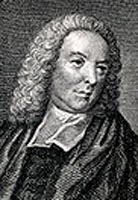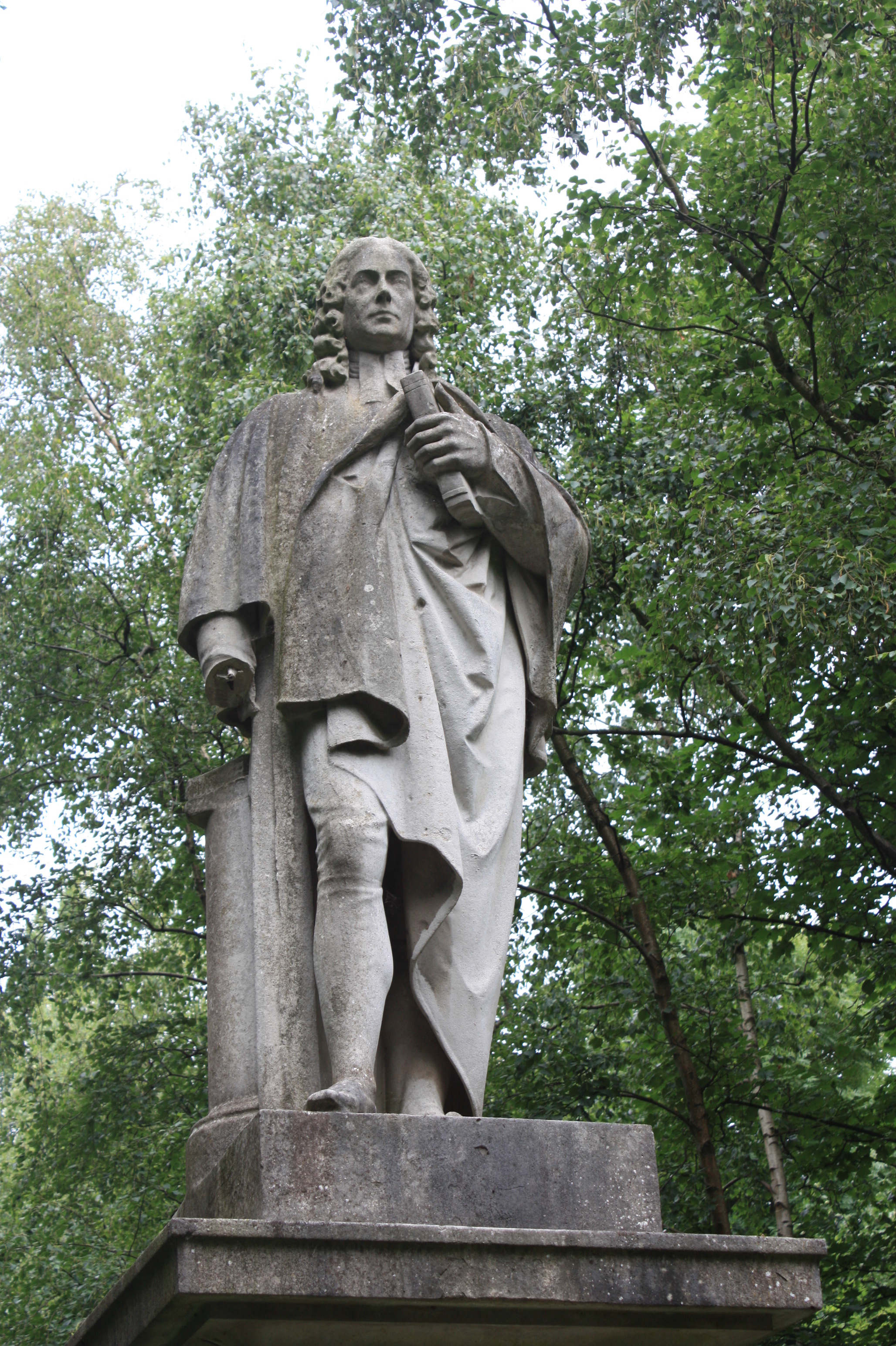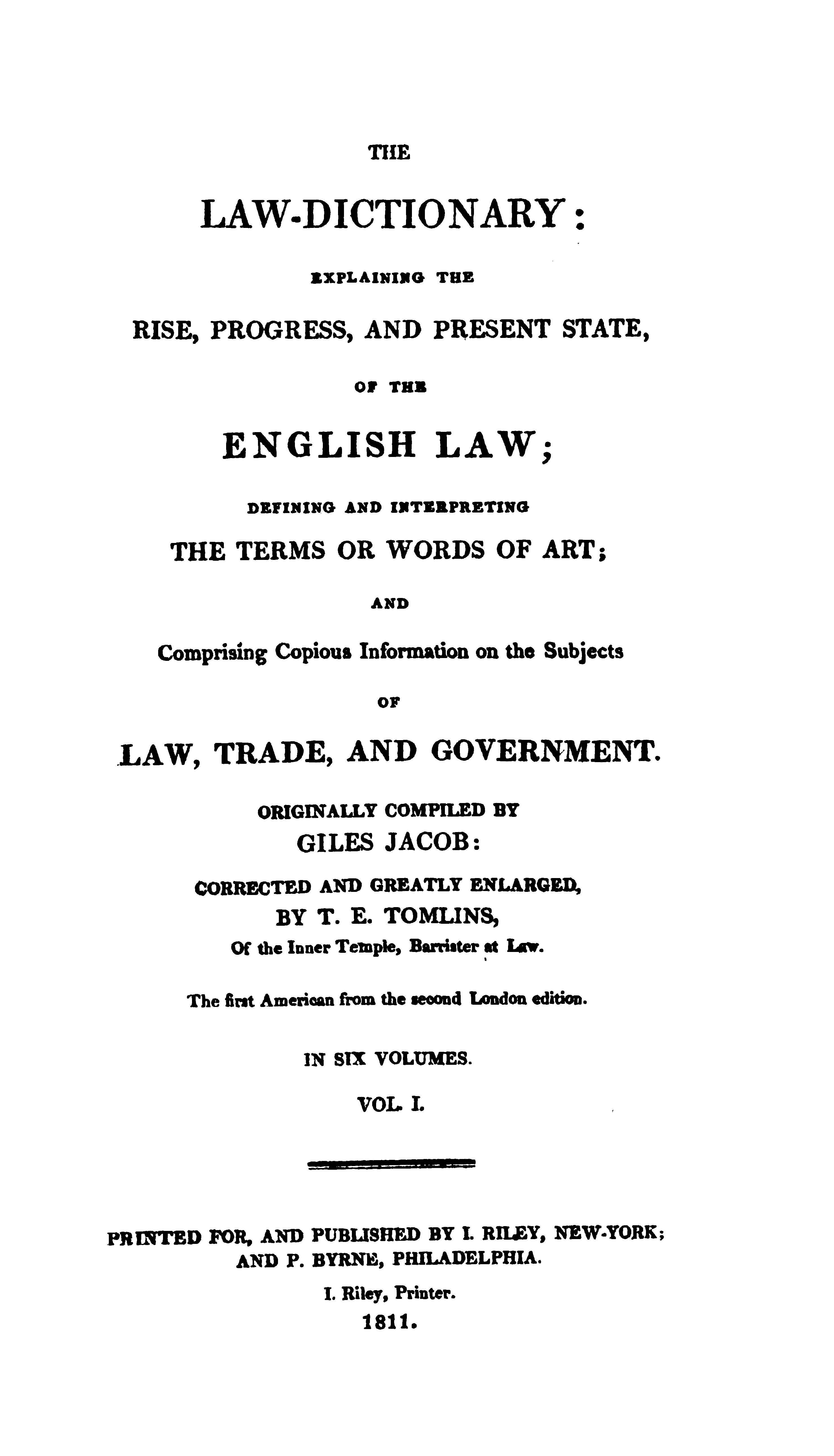|
1719 In Literature
This article contains information about the literary events and publications of 1719. Events *March 14 – Richard Steele launches ''The Plebeian'', in opposition to government policy on peerages. *April 23– 25 – Daniel Defoe's novel ''Robinson Crusoe'' is published in London (by W. Taylor) as his first work of fiction, written aged about 60. The initial title is ''The Life and Strange Surprizing Adventures of Robinson Crusoe, of York, Mariner: Who lived Eight and Twenty Years, all alone in an un-inhabited Island on the Coast of America, near the Mouth of the Great River of Oroonoque; Having been cast on Shore by Shipwreck, wherein all the Men perished but himself. With An Account how he was at last as strangely deliver'd by Pyrates. Written by Himself''. Defoe's anonymity is broken in September by Charles Gildon in ''The Life and Strange Surprizing Adventures of Mr D— De D—, of London, Hosier''. By the end of the year the book has run through four editions. Defoe's sequ ... [...More Info...] [...Related Items...] OR: [Wikipedia] [Google] [Baidu] |
March 14
Events Pre-1600 * 1074 – Battle of Mogyoród: Dukes Géza and Ladislaus defeat their cousin Solomon, King of Hungary, forcing him to flee to Hungary's western borderland. * 1590 – Battle of Ivry: Henry of Navarre and the Huguenots defeat the forces of the Catholic League under Charles, Duke of Mayenne, during the French Wars of Religion. 1601–1900 * 1647 – Thirty Years' War: Bavaria, Cologne, France and Sweden sign the Truce of Ulm. * 1663 – According to his own account, Otto von Guericke completes his book ''Experimenta Nova (ut vocantur) Magdeburgica de Vacuo Spatio'', detailing his experiments on vacuum and his discovery of electrostatic repulsion. * 1674 – The Third Anglo-Dutch War: The Battle of Ronas Voe results in the Dutch East India Company ship ''Wapen van Rotterdam'' being captured with a death toll of up to 300 Dutch crew and soldiers. * 1757 – Admiral Sir John Byng is executed by firing squad aboard for breach of the Ar ... [...More Info...] [...Related Items...] OR: [Wikipedia] [Google] [Baidu] |
Jean-Baptiste Dubos
Jean-Baptiste Dubos (; 14 December 1670 – 23 March 1742), also referred to as l'Abbé Du Bos, was a French author. He was also a diplomat and an art critic. Life Dubos was born in Beauvais. He was educated in Paris and received a Master of Arts in 1688 and a Bachelor of Theology in 1692. After studying theology, he gave it up in favour of public law and politics. He was employed by M. de Torcy, minister of foreign affairs, and by the regent and Cardinal Dubois in several secret missions. He was rewarded with a pension and other advantages. Having obtained these, he retired from political life and devoted himself to history and literature. During his travels as French envoy, he cultivated connections with contemporary prominent thinkers. These included Pierre Bayle, Jean Chardin, and John Locke, who he became close friends with. Dubos gained such distinction as an author that in 1720 he was elected a member of the Académie française, and, in 1723, was appointed to the position ... [...More Info...] [...Related Items...] OR: [Wikipedia] [Google] [Baidu] |
Henry IV Of France (play)
''Henry IV of France'' is a 1719 tragedy by the British writer Charles Beckingham. It portrays the reign of Henry IV of France, who was assassinated in 1610. The play was written and produced a time when the Catholic Jacobite pretender James III was attempting to launch an invasion of Britain with the assistance of Spain, and reflects Whig concerns about Catholic power and the persecution of French Huguenots. Although a Catholic by the time of his death, Henry IV is portrayed as a defender of liberty and a victim of plotting by the Catholic factions at his court.Streete p.251 The original cast included James Quin as Henry, Lacy Ryan as Prince of Conde, John Leigh as Duke of Vendome, John Ogden as Duke of Boullion, Thomas Smith as Villeyor, Richard Diggs as Rosny, John Harper as Montmorency, Christopher Bullock as Nuncio, Anthony Boheme as French Bishop, John Egleton as Ravillac and Jane Rogers as Charlotta. The epilogue was written by George Sewell George Sewell ... [...More Info...] [...Related Items...] OR: [Wikipedia] [Google] [Baidu] |
Charles Beckingham
Charles Beckingham (25 July 1699 – 19 February 1730-31) was an English poet and dramatist. Life Beckingham was born, according to the register of Merchant Taylors' School, on 25 July 1699 (Robinson's ''Register'', ii. 32). His father was a linen draper in Fleet Street. Beckingham was educated at Merchant Taylors' School under Dr. Smith, and is said to have displayed "great proficiency in his studies", and given "the strongest testimonials of extraordinary abilities". On 18 February 1718 '' Scipio Africanus'', a historical tragedy in the regulation five acts, was produced at the theatre in Lincoln's Inn Fields. This was followed at the same house on 7 November of the next year by a second work of a similar description, entitled ''Henry IV of France''. The youth of the author, and the presence of a large number of his fellow-students who had been permitted to visit the theatre, gave some éclat to the production of the earlier work. A chief subject of praise in contemporary w ... [...More Info...] [...Related Items...] OR: [Wikipedia] [Google] [Baidu] |
The Younger Brother
''The'' () is a grammatical article in English, denoting persons or things already mentioned, under discussion, implied or otherwise presumed familiar to listeners, readers, or speakers. It is the definite article in English. ''The'' is the most frequently used word in the English language; studies and analyses of texts have found it to account for seven percent of all printed English-language words. It is derived from gendered articles in Old English which combined in Middle English and now has a single form used with pronouns of any gender. The word can be used with both singular and plural nouns, and with a noun that starts with any letter. This is different from many other languages, which have different forms of the definite article for different genders or numbers. Pronunciation In most dialects, "the" is pronounced as (with the voiced dental fricative followed by a schwa) when followed by a consonant sound, and as (homophone of pronoun ''thee'') when followed by a v ... [...More Info...] [...Related Items...] OR: [Wikipedia] [Google] [Baidu] |
Thomas Otway
Thomas Otway (3 March 165214 April 1685) was an English dramatist of the Restoration period, best known for ''Venice Preserv'd'', or ''A Plot Discover'd'' (1682). Life Otway was born at Trotton near Midhurst, the parish of which his father, Humphrey Otway, was at that time curate. Humphrey later became rector of Woolbeding, a neighbouring parish, where Thomas Otway was brought up and expected to commit to priesthood. He was educated at Winchester College, and in 1669 entered Christ Church, Oxford, as a commoner, but left the university without a degree in the autumn of 1672. At Oxford he made the acquaintance of Anthony Cary, 5th Viscount Falkland, through whom, he says in the dedication to '' Caius Marius'', he first learned to love books. In London he made acquaintance with Aphra Behn, who in 1672 cast him as the old king in her play, ''Forc'd Marriage, or The Jealous Bridegroom'', at the Dorset Garden Theatre. However, due to severe stage fright, he gave an abysmal performan ... [...More Info...] [...Related Items...] OR: [Wikipedia] [Google] [Baidu] |
Edward Young
Edward Young (c. 3 July 1683 – 5 April 1765) was an English poet, best remembered for ''Night-Thoughts'', a series of philosophical writings in blank verse, reflecting his state of mind following several bereavements. It was one of the most popular poems of the century, influencing Goethe and Edmund Burke, among many others, with its notable illustrations by William Blake. Young also took holy orders, and wrote many fawning letters in search of preferment, attracting accusations of insincerity. Early life Young was a son of Edward Young, later Dean of Salisbury, and was born at his father's rectory at Upham, near Winchester, where he was baptized on 3 July 1683. He was educated at Winchester College, and matriculated at New College, Oxford, in 1702. He later migrated to Corpus Christi, and in 1708 was nominated by Archbishop Tenison to a law fellowship at All Souls. He took his degree of Doctor of Canon Law in 1719.Chisholm, 1911 Literary career Young's first publica ... [...More Info...] [...Related Items...] OR: [Wikipedia] [Google] [Baidu] |
Georg Von Welling
Georg von Welling (1655–1727) born, 1655, in Kassel in Hesse, was a German alchemical and theosophical writer, known for his work ''Opus mago-cabalisticum'',The work is said to have been influential on later eighteenth century Rosicrucians, in particula Nicholas Boyle, ''Goethe: The Poet and the Age'' (1991, vol.I) mentions von Welling several times in relation with the Goethe of the 1770s (pp.76, 88, 222), referencing Goethe's dabbling in alchemy, and the ''Urfaust'' writings that seek to show Faust reaching beyond the contemplative holism in von Welling. first published incomplete under the pseudonym Gregorius Anglus Sallwigt in 1719. By profession he worked in the mining industry, becoming Director in the Baden-Durlacher Office of Building and Mines. He lost his position in 1723, and retired to Bockenheim near Frankfurt, where he died in 1727. The first complete publication of his major work, Opus Mago-cabbalisticum et theosophicum, was printed in 1735 8 years after his death ... [...More Info...] [...Related Items...] OR: [Wikipedia] [Google] [Baidu] |
Isaac Watts
Isaac Watts (17 July 1674 – 25 November 1748) was an English Congregational minister, hymn writer, theologian, and logician. He was a prolific and popular hymn writer and is credited with some 750 hymns. His works include "When I Survey the Wondrous Cross", "Joy to the World", and "Our God, Our Help in Ages Past". He is recognized as the "Godfather of English Hymnody"; many of his hymns remain in use today and have been translated into numerous languages. Life Watts was born in Southampton, Hampshire, England, in 1674 and was brought up in the home of a committed religious nonconformist; his father, also Isaac Watts, had been incarcerated twice for his views. Watts had a classical education at King Edward VI School, Southampton, learning Latin, Greek, and Hebrew. Watts displayed a propensity for rhyme from an early age. He was once asked why he had his eyes open during prayers, to which he responded: He received corporal punishment for this, to which he cried: Watts co ... [...More Info...] [...Related Items...] OR: [Wikipedia] [Google] [Baidu] |
Nicholas Rowe (writer)
Nicholas Rowe (; 20 June 1674 – 6 December 1718), English dramatist, poet and miscellaneous writer, was appointed Poet Laureate in 1715. His plays and poems were well-received during his lifetime, with one of his translations described as one of the greatest productions in English poetry. He was also considered the first editor of the works of William Shakespeare. Life Nicholas Rowe was born in Little Barford, Bedfordshire, England, son of John Rowe (d. 1692), barrister and sergeant-at-law, and Elizabeth, daughter of Jasper Edwards, on 20 June 1674. His family possessed a considerable estate at Lamerton in Devonshire. His father practised law and published Benlow's and Dallison's Reports during the reign of King James II. The future Poet Laureate was educated first at Highgate School, and then at Westminster School under the guidance of Richard Busby. In 1688, Rowe became a King's Scholar, which was followed by his entrance into Middle Temple in 1691. His entrance into Midd ... [...More Info...] [...Related Items...] OR: [Wikipedia] [Google] [Baidu] |
Peter Kolbe
Peter Kolbe (also referred to as Kolb) (10 October 1675 in Marktredwitz – 31 December 1726 in Neustadt an der Aisch) was a German teacher, astronomer, ethnologist, traveller and explorer of South Africa. His major work was the book ''Caput bonae spei hodiernum'' (1719) in which he provided detailed descriptions of Khoikhoi life which differed significantly in perception from the descriptions of earlier travellers. He compared European culture and beliefs with those of the Khoikhoi. An abridged English translation was produced by Thomas Astley in 1746. Life and work Peter Kolbe was born in a village Dorflas just outside Marktredwitz near Bayreuth, the son of a blacksmith and customs collector. He was educated at Bayreuth, Redwitz and Wunsiedel. He received support from patrons after the death of his father and went to Nuremberg. In Nuremberg he worked from 1696 for the scholar Georg Christoph Eimmart who had built his own astronomical observatory. He chose Kolb as its conservat ... [...More Info...] [...Related Items...] OR: [Wikipedia] [Google] [Baidu] |
Giles Jacob
Giles Jacob (1686 – 8 May 1744) was a British legal writer whose works include a well-received law dictionary that became the most popular and widespread law dictionary in the newly independent United States.McDowell, Gary. The Language of Law and the Foundations of American Constitutionalism', p. 172 (2010). Jacob was the leading legal writer of his era, according to the Yale Law Library. The literary works of Giles Jacob did not fare as well as his legal ones, and he feuded with the poet Alexander Pope both publicly and in literary form. Pope named Jacob as one of the dunces in his 1728 ''Dunciad'', referring to Jacob as "the blunderbuss of the law". Jacob is remembered well for his legal writing, though not so much for his poetry and plays. Early life Giles was born in Romsey, Hampshire, and was baptized on 22 November 1686.Kilburn, Matthew. "Giles Jacob" in Matthew, H.C.G. and Brian Harrison, eds. ''The Oxford Dictionary of National Biography.'' vol. 29, 546–7. Lond ... [...More Info...] [...Related Items...] OR: [Wikipedia] [Google] [Baidu] |
.png)



_Arms.png)

